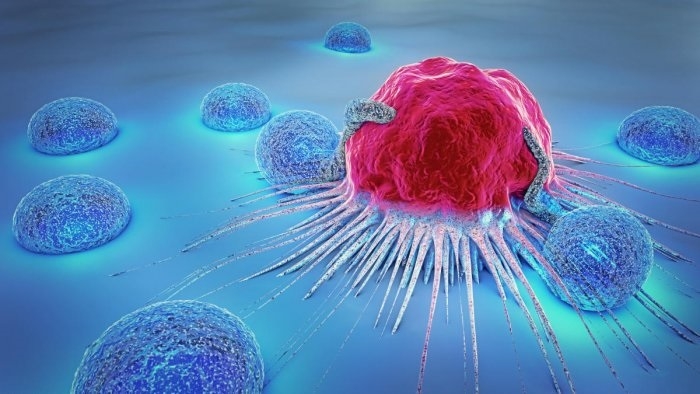Loud applauds for Indian scientists! Team of Indian scientists develops tech for early cancer detection
Total Views |
New Delhi, Aug. 23: Cancer is one of the most significant reasons of deaths still today. Still today. Most of the scientists in the world are engaged in research in cancer medicine.

Now, making another successful research in cancer medication, a team of Pune-based scientists developed technology to detect the early spread of cancer by blood sample test based on liquid biopsy.
Liquid biopsy is a test done on a sample of blood to look for cancer cells form a tumor that is circulating in the blood or for pieces of DNA from tumor cells that are in the blood. It can be used to help find cancer at an early stage. It can also help plan treatment or to find out how well treatment is working or if cancer has come back.
Mr. Jayant Khandare, who led the team, said that the test will be launched in a phased manner all over India from September. The long-term plan is to release the test in key global markets within the next few years.
According to official reports, the technology was among the few laboratory-to-clinic translational types of research, a rarity in India. It is called OncoDiscover and can allow regular monitoring of disease progression. It can also help to provide an early indication of cancer relapse. It is a blood test that detects circulating tumor cells even when their presence is extremely low or minuscule in a patient’s blood.
Mr. Khandare is the Chief Scientific Officer at a Pune-based start-up, which has been funded for high-risk innovations by the Biotechnology Industry Research Assistance Council, an industry support wing of the Department of Biotechnology (DBT).
A team of scientists led by Mr. Khandare worked to solve the technological challenges in detecting circulating tumor cells (CTCs) from lung, breast, colorectal, head, and neck cancers.
CTCs are extremely low in numbers, as low as one CTC is accounted for in millions of other blood cells. “Their isolation and enumeration in a patient’s blood are like finding a needle in a haystack,” Mr. Khandare said.
Mr. Khandare also said, "the technology is the second of its kind in the world after the one already available in the United States.
The Indian version would be far cheaper and more specific than the technology in the United States, according to him.
The Central Drugs Standard Control Organisation, which the regulatory body for drugs and medical, has already granted a license for the manufacture and sale of the test kit in India under the Medical Device Rules, 2017.
The initiative is a collaborative five-year bilateral research program by the DBT under the Indian Ministry of Science & Technology, and the Cancer Research UK (CRUK).
The Chief Information Officer (CIO) of the organization said that technology is being invested in and prioritized at Cancer Research UK. She said the newly created team are focussed on driving forward the sort of cutting-edge solutions that are vital to its continued growth and development.
The India-UK initiative will focus on developing affordable approaches to cancer treatment. Both Cancer Research UK and the DBT will invest GBP £5 million around (the US $6.4 million) each in the 5-year pilot and seek further investment from other potential funding partners.